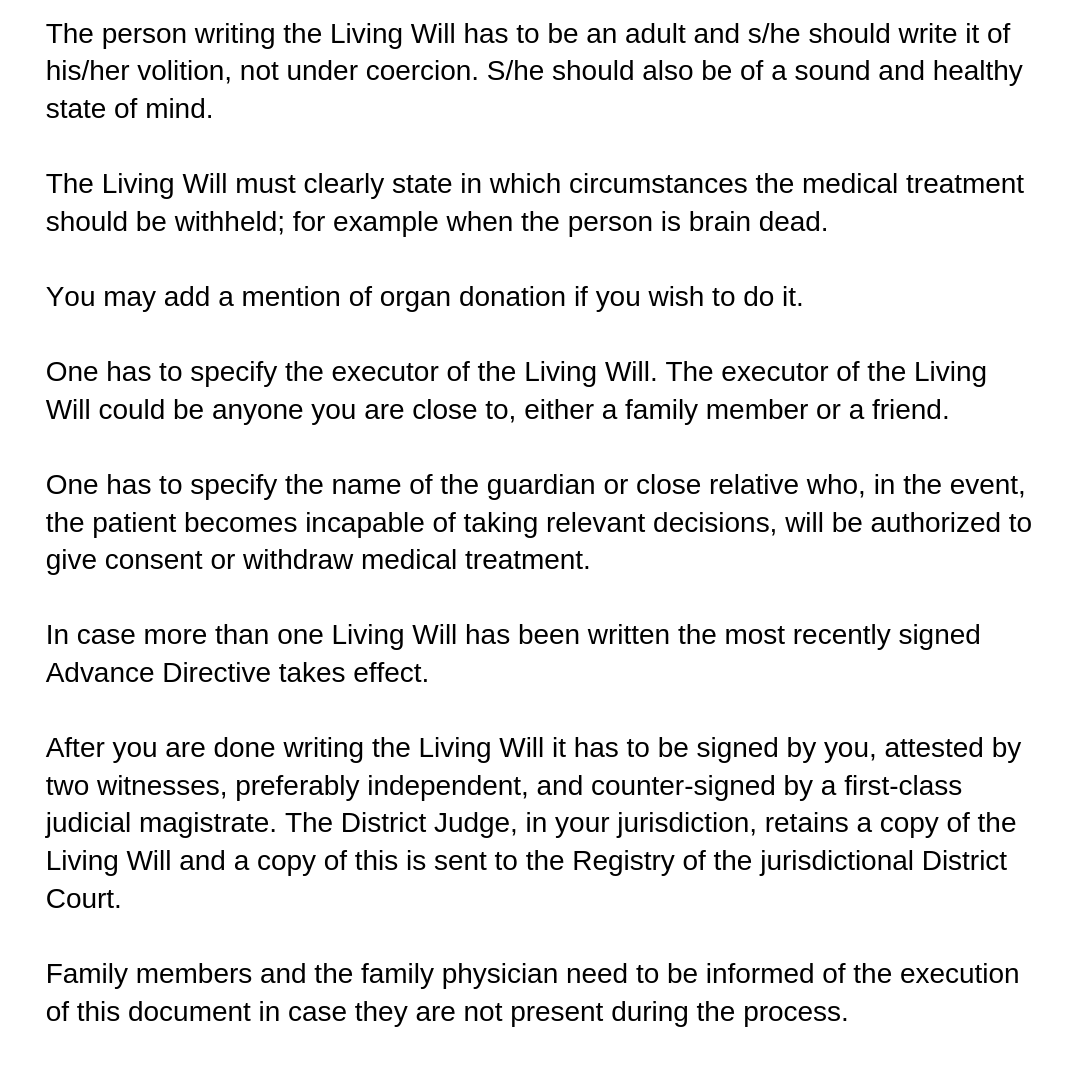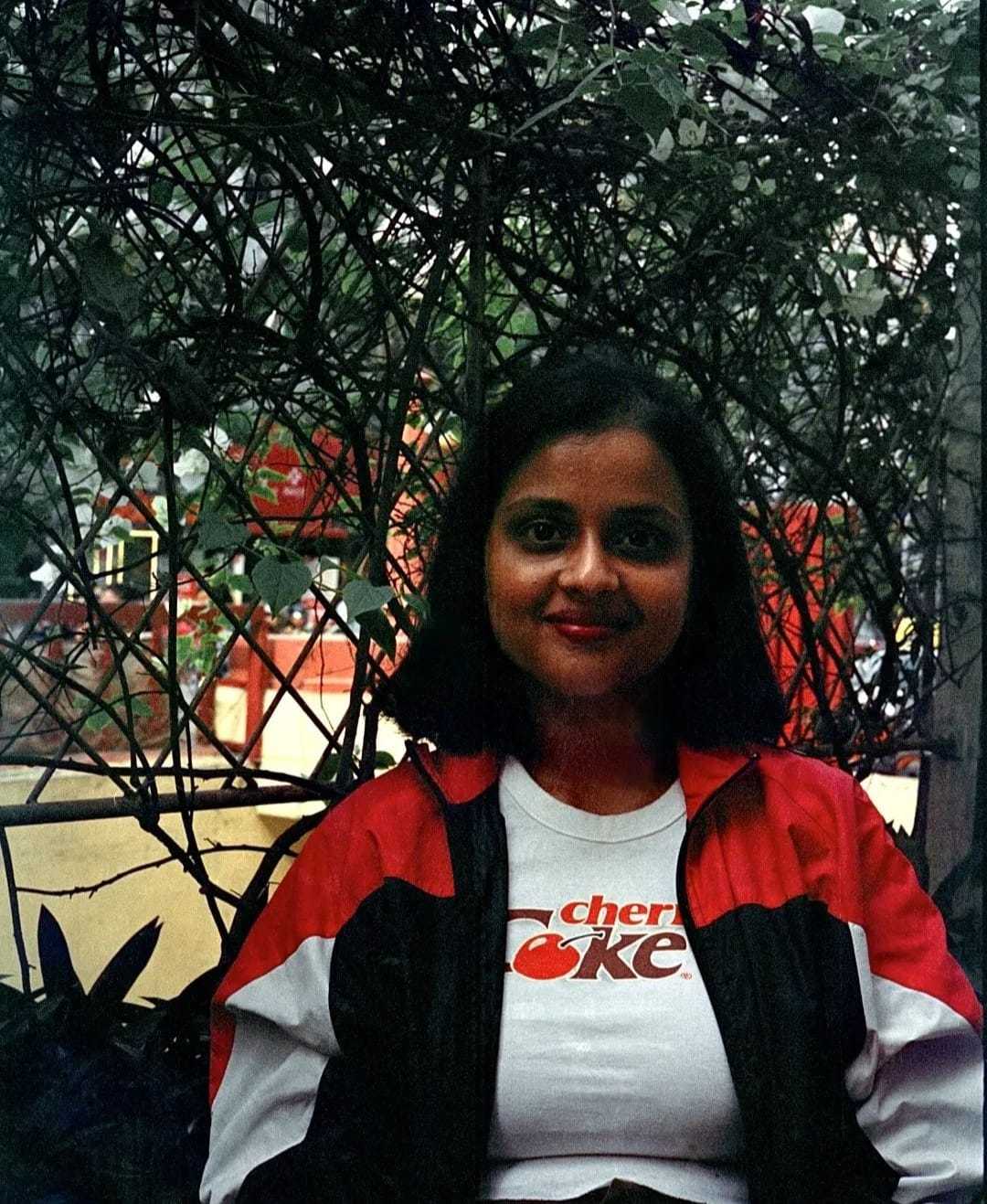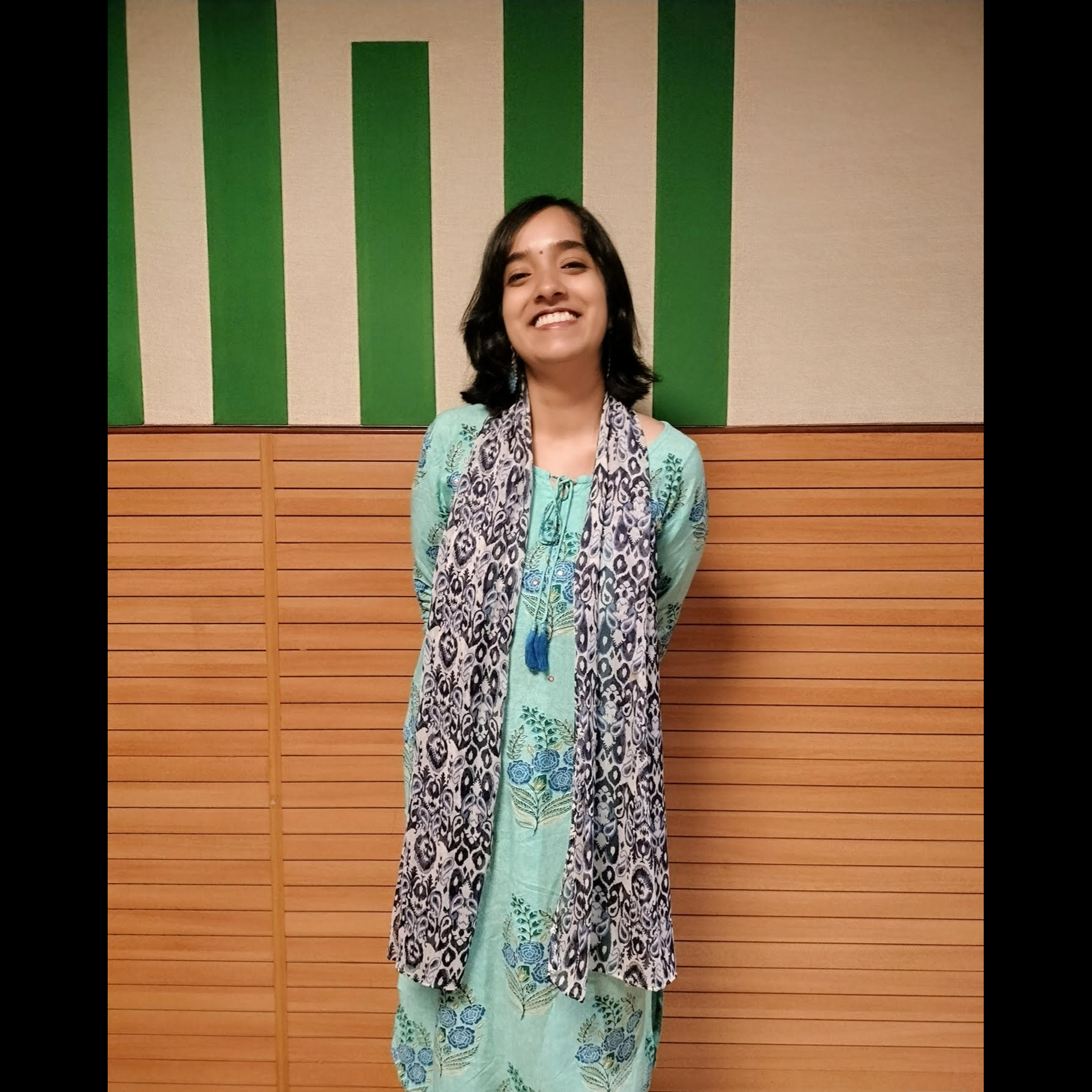Living Will: What You Need To Know
In a landmark verdict in March 2018, the Supreme Court had ruled that in specific circumstances, a person has the right to decide against artificial life support by creating a living will. A Living Will is a written statement detailing a person’s desires regarding future medical treatment in circumstances in which they are no longer able to express informed consent. Here’s an account of Kalpana Nambiar’s personal journey of writing her Living Will and further details on it.
At an age when most of us would be planning our grandchild’s birthday party theme, Kalpana Nambiar drafted her Living Will. What lead her down this path less travelled? Nambiar, 60, is Managing Director of a private company that provides labour law consultancy and renders private security services to factories and corporates. She is a mother of two young married daughters and fond grandma to a five-year-old.
“Two incidents nudged me,” says Nambiar. “I had been following the Aruna Shanbaug case where a young nurse, raped by a hospital ward boy, had been in a coma for 42 years. Activist Pinky Virani had been crusading for mercy killing for Aruna who was cared for by the nurses at her hospital. Aruna’s core family had abandoned her.
“I used to think that if such a thing should happen to me what a terrible burden it will be for my daughters. And what about the huge expense? And what would really justify a family’s resources being spent on one person whose chances of recovering and being a productive human being are practically nil? Was it even fair to ask this of your family?
“I still remember in the Supreme Court’s judgment on the Aruna Shanbaug case passed in 2018, Chief Justice Deepak Misra, stated – ‘why should we not allow them to cross the door and meet death with dignity. For some, even their death could be a moment of celebration.’
“Secondly, and perhaps I should say this was also my motive in following Aruna’s case, was my personal tryst with the dreaded ‘C’ word. In early 2011 I sensed a small lump in my breast. Although the tests were negative for cancer, I was not able to accept the doctors’ advice of letting it be. I insisted that they take out the lump. And after multiple lab tests, they found that the lump actually harboured an aggressive type of cancer that would have taken 10-15 years to manifest.”
“I saw the pain my daughters went through and also experienced their helplessness. It is now almost seven years that I’ve been in recovery. Since my brush with cancer, I have reflected a lot on what living and dying means to me. I became aware that I had been neglectful of my personal needs. It is quite possibly the default mode for most women and even men. But the consequences of this neglect are borne by the entire family. I realized my health ought to be my priority. This has become a crusade for me. I advise everyone I meet to heed their physical and emotional needs first and foremost. Certainly, my tryst with cancer made me aware that I was a marked mortal.”
“If an individual has more than one sibling there can be even more confusion, they may not all agree on the right choice when there is no hope of a revival of the ill person and in fact it could go into litigation. If this decision goes to the court then we have no idea how long it will take. It will be a living death for the person and for a prolonged period of time. This all can be avoided by the simple act of writing a Living Will.”
So what are the specific points Nambiar has included in her Living Will?
“In India the Living Will means you are giving an advance directive about what kind of medical interventions you are okay with and what you do not approve of for yourself in the event that you are seriously ill and unable to decide these for yourself. You can also make clear instructions on organ donation.”
Remember that the Living Will is not legislation yet, however, a judgment by the Supreme Court is legally binding on all. There are a few prerequisites to writing a Living Will:
Why Has the Living Will Not Gained Traction in India?
The Living Will has been offered as a catchall solution to dying with dignity. There is a string of legal battles and several unsung warriors of this cause. But is it true that there was no redress for this in traditional Indian society?
“Traditionally, Hindus and Jains followed passive euthanasia. Both these faiths allow a fast unto death of elders wishing to exit from life. Among the Jains the last meal is offered in front of the elders of the community and the rite is called ‘santhara’ and in effect this rite celebrates death. Among the Hindus, this rite of taking Samadhi, i.e. ceasing from consuming food and water is called ‘prayopvesa’,” clarifies Nambiar.
Since the Supreme Court’s directive in 2018, there are no documented cases on the making or the following of the Advance Directive or Living Will. It appears that the main reason for this is that only disputes go to court and become public. For the most part, doctors are too busy to go into the details of the implementation of the Living Will; this has to be a proactive step on the part of the family. In addition, hospitals profit from the prolonged occupation of hospital beds and are therefore unlikely to publicise or counsel families to execute the Living Will.
So why has the Living Will not gained traction? Why do we not hear of more and more people executing their Advance Directive? Is it just human nature that comes in the way of making the Living Will actionable?
The reasons for this are multifold. Firstly, the Living Will is open to abuse by beneficiaries who may choose to take short cuts to action the Living Will rather than go through due process. For example, when it is time to action the Living Will, the hospital where the individual has been admitted needs to constitute a Medical Board comprising the Head of the treating department and at least three experts from the field of general medicine, cardiology, neurology, nephrology, psychiatry or oncology who shall visit the patient in the hospital and either certify or not certify actioning the Advance Directive. The hospital then informs the jurisdictional Magistrate about this and he immediately constitutes a medical Board comprising the Chief District Medical Officer of the concerned district as the Chairman and three expert doctors from the fields of general medicine, cardiology, neurology, psychiatry or oncology. They then visit the patient jointly and if they concur with the initial decision of the medical board they may endorse the certificate to carry out the instructions given in the Advance Directive. Despite all these checks and balances, doctors are scared of being accused of collusion with beneficiaries and at the same time malpractice litigation by the non-beneficiaries.
It’s true that as human beings we don’t want to talk about death but we need to. When we take the step to write an Advance Directive we live with greater awareness and perhaps carry the awareness in death too. What could be a more fitting way to leave this world a better place?
Comments

Arun Bhatia
16 Jul, 2019
Well written. Thank you Sandhya. (P.S. I am 84 and have registered a living will a few months ago and understood mine was the first in Karnataka. I could be wrong. This concept needs to be widely publicised.)

Varini Patel
21 Feb, 2019
A really good concept whereby you make decisions of your life and are not at mercy of others when it can get disputable. This advance decision and Lasting power of attorney (you authorise someone to make your health decisions when you are mentally incapable of it) has been part of Mental capacity act 2005 in the UK and is being used quite widely.

Jaya Chavan
21 Feb, 2019
Extremely good concept.. This is essentially a document that allows a person to decide in advance the course of medical treatment he/she would want if he/she were rendered terminally or seriously ill and incapable of taking a decision at the that point.

Pradip Nagar
21 Feb, 2019
A novel concept, the advance directive that's beneficial to an individual and all concerned The concept deserves propagation for vast traction

Pankaj Mithel
21 Feb, 2019
Surely an idea that will resonate with so many contemporaries. Extremely well crafted.

Rose Gordon
20 Feb, 2019
Thank you Sandhya for this necessary conversation. People are in peril of being on mechanical life support endlessly without taking the legal steps necessary, such as a Living Will or Advanced Directives. So sad if families do not support their loved ones and respect their dignity and wishes.

Anonoymous
01 Oct, 2013
[…] To read about Kalpana Nambiar’s personal journey of writing her Living Will, click here: https://silvertalkies.com/living-will-need-know/ […]









Post a comment